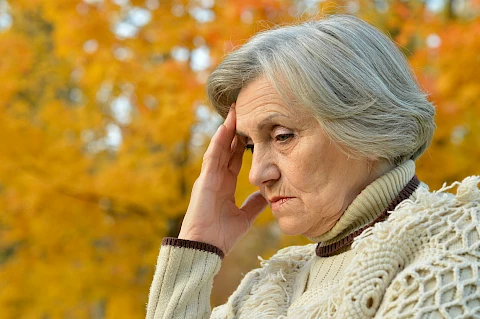
Many seniors may experience shifts in their mood and energy levels with the changing seasons, particularly in the fall. The shorter days and cooler temperatures can contribute to feelings of lethargy or sadness. Addressing these changes requires a thoughtful approach to care so you can better support the emotional and physical health of your senior loved ones.
Autumn’s Effects on Senior Moods and Energy Levels
The autumn season can lead to a condition known as seasonal affective disorder (SAD). This is a type of depression that occurs at the same time every year, usually in the fall and winter months. Reduced daylight during this time can significantly affect mood and energy. These changes can pose specific challenges, such as feeling more isolated or struggling with existing health conditions. The lack of sunlight and decreased outdoor activity can exacerbate these mood and energy shifts.
Signs of Mood Imbalances and Reduced Energy
Common symptoms to look out for include increased fatigue, changes in sleep patterns, sadness or depression, and decreased interest in activities. Feeling tired more often, even after resting, is a common sign of fatigue. Sleep patterns may change. Some seniors may have difficulty falling or staying asleep. Others may sleep more than usual. Feelings of sadness, hopelessness, or frequent bouts of crying can indicate depression. Losing interest in hobbies or activities that were once enjoyable is another sign to watch for.
Managing Mood and Energy Changes
Addressing the shifts in the mood and energy levels of senior loved ones during autumn involves incorporating a routine that focuses on maintaining their overall well-being.
Establishing a Consistent Sleep Schedule
Regular sleep patterns can benefit mood and energy levels. Aim to go to bed and wake up at the same time every day. To improve sleep quality, create a relaxing bedtime routine, such as reading a book or listening to soothing music.
Engaging in Appropriate Physical Activities
Exercises like walking provide a gentle way to stay active while enjoying the outdoors. Chair exercises are another option, offering simple movements you can do while seated. To promote relaxation and flexibility, consider practices like yoga or tai chi. Remember to consult your care provider before engaging in a new exercise routine.
Ensuring Adequate Exposure to Daylight
Natural light is vital in regulating mood and energy. Try to get outside for at least 30 minutes daily, especially in the morning. Set up seating areas near windows to maximize daylight exposure indoors. If outdoor activities are not feasible due to weather or mobility issues, consider using light therapy lamps designed to mimic natural sunlight.
Balanced Diet and Hydration
A balanced diet can help maintain energy levels and affect mood positively. Eat foods rich in vitamins and minerals, including fruits and vegetables. Consider foods high in omega-3 fatty acids, like fish and walnuts, as they are known to improve mood. To stay hydrated, aim to drink plenty of water throughout the day.
Embrace Autumn With Support From Seniors
Managing mood imbalances and reduced energy during the fall can be challenging. However, you don't have to face it alone. If you could use additional support this fall and beyond, Senior Helpers Elmwood Park can help. We provide professional in-home care for seniors in Chicago, Elmwood Park, Franklin Park, Harwood Heights, and Stone Park. Our services cover everything from caring companionship and conversation to assistance with daily living activities and more. Contact us to learn about our home care services.